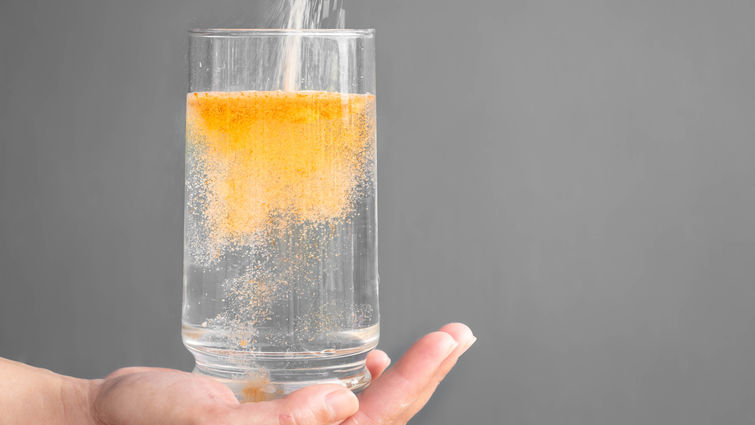
Hydration supplements disguised as powders and electrolyte drinks can benefit the body but should not replace water consumption. Preventive medicine specialist Peter Bastian, MD, MPH, says while electrolytes are vital for healthy bodily functions, he recommends finding them in food instead of processed supplements.
Electrolytes, like magnesium and sodium, have many purposes in the body and are responsible for regulating overall hydration. Sodium assists cellular hydration by maintaining the proper balance of fluid in cells and preventing dehydration.
Hydration supplements are chock full of sodium, but 90% of Americans consume more than the recommended daily amount, less than 2,300 milligrams. Eating a variety of fruit and vegetables allows you intake enough electrolytes into your system, limiting the need for supplements that contain excess amounts of sodium.
Studies show that high or low levels of electrolytes disrupt normal bodily functions and can eventually lead to complications like nausea, muscle cramping, dizziness, and fatigue. Bastian says keeping sodium levels balanced while exercising is particularly important to prevent these symptoms.
Electrolyte drinks or powder mixes can benefit you when you have not drunk the appropriate amount of water to make up for urine and sweat excretion. But Bastian recommends eating an apple and drinking water. Natural carbs and protein paired with water will provide the necessary electrolytes while reenergizing and rehydrating the body
“Many supplements claim to provide the necessary components for hydration,” Bastian says. “They fail to mention our food provides us with the same components and fuels the body before going into failure.”
For more information on what nutrient-rich foods or supplements may be beneficial for your health, make an appointment with a Loma Linda University Health preventive medicine provider on MyChart.
